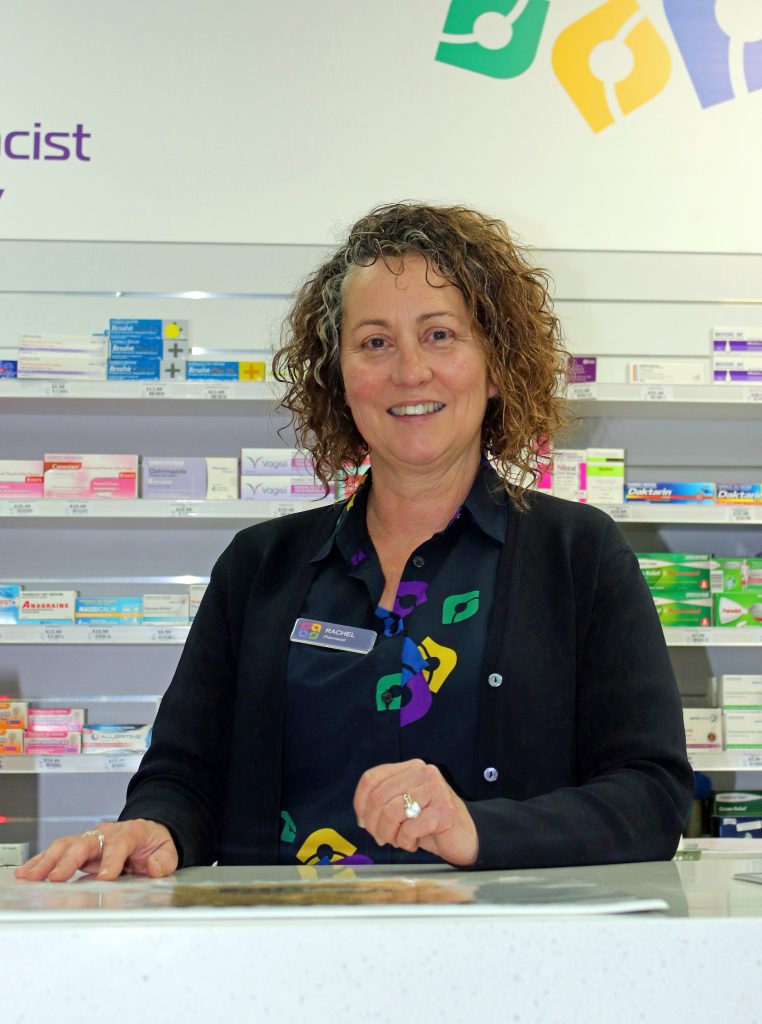Improving support at the end of life
Posted on December 19, 2024

How a Tasmanian program is increasing access to palliative care medicines
When you are caring for someone near the end of their life, it can be hard to find the medicines they need outside a hospital or specialist care environment.
But a new project that encourages community pharmacies to stock a core range of palliative care medicines is giving Tasmanians better access to symptom management to avoid unnecessary hospital visits and enable them to have a good death at home, if that is their choice.
Working collaboratively with GPs and other healthcare professionals, Palliative Care Prepared Pharmacies are stocking the seven most common end-of-life medicines – morphine, midazolam, metoclopramide, hyoscine butylbromide, hydromorphone, haloperidol and clonazepam – so patients can access what they need, when they need it.
Part of the Tasmanian Government’s Community Pharmacies in Palliative Care Tasmania (ComPPaCT) initiative, the Palliative Care Prepared Pharmacies project means people don’t have to waste time shopping around pharmacies and can simply go to the ‘Find a Pharmacy’ directory (www.findapharmacy.com.au) to locate their nearest pharmacy committed to stocking these essential medicines.
Pharmacist Rachel Rees from Epic Pharmacy in New Town, who sat on the ComPPaCT advisory committee, says this timely access to vital medications has already had a huge impact for palliative patients.
“Even though you don’t often see the patient themselves, it’s just wonderful that you can actually help people to streamline the process so that it’s not an additional trauma at an already extremely difficult time of life,” she says.
“It makes their forward planning smooth, because they know they can actually get the medication that’s required.
“Previously, family members and carers would have been ringing around at 5:30pm trying to find a pharmacy that has these medications because the nurse is coming to give it to the patient.
“Being able to look it up online and find a pharmacy they know is going to have what they need takes the stress out of those situations. Even a tiny bit of inconvenience when trying to access these medications can be quite catastrophic for people.
“You can’t underestimate the impact of that ease of access in this situation. It’s really rewarding for us to be able to make it easy.”
Rachel, who has been a pharmacist for 35 years, says the new program has removed barriers that had previously discouraged pharmacists from dispensing palliative care drugs.
“The really big game-changer is that pharmacies tended not to stock those medications because they would only occasionally get a script for them,” she says, “and they have short expiry dates, so pharmacies would end up with medication that they’d just have to throw away.”
But with the State Government offering incentive payments of $200 for pharmacies to participate in the Palliative Care Prepared Pharmacies program, almost 100 pharmacies across Tasmania have already signed on.
“The commitment from so many of our pharmacies to stock these medicines will certainly have resulted in less stress for families and carers finding essential medicines in a timely manner,” Pharmaceutical Society of Australia (PSA) state manager Ella van Tienen says.
“We’re really happy to see so many pharmacies committing to stocking end-of-life medicines, and hope that this results in reduced stress and greater access to critical medications for patients and families at such a stressful time in their journeys.”
The PSA and Primary Health Tasmania have worked together to host a series of education events designed to equip pharmacists, GPs and nurses with the knowledge and skills needed to provide quality medication management and support for palliative patients.
“The engagement from health professionals involved in the delivery of community-based palliative care at the workshops we delivered across the state was wonderful,” Ella says.
One GP who has embraced the program is Dr Samantha Wyton, who specialises in end-of-life care at home.
“Sometimes patients deteriorate very quickly and it is vital to have medications available to allow a seamless transition to end-of-life care,” Sam says.
“Previously I have needed to call around pharmacies or ask my patients’ friends or family to do so, which can use up limited resources or time their friends or family would like to spend with their loved one.
“Now I can quickly direct a patient’s family to a pharmacy that will have stock and can let them know the opening hours.
“Getting more pharmacies involved will increase access for patients and reduce stress for their families and friends.”
Patients and their carers can visit findapharmacy.com.au to locate their nearest Palliative Care Prepared Pharmacy, while interested community pharmacists can register for the program via the Tas Guild website.
This story features in Issue 19 of our Primary Health Matters magazine. Click here to read the rest of the issue.
